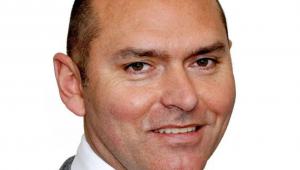Addressing the Healthcare Financial Management Association’s annual conference in London yesterday, Mackey noted that when he addressed last year’s conference, shortly after his appointment to the regulator, there was an “awful lot of negativity and pessimism about where we were”.
He praised the sector for succeeding in bringing down the deficit to such a degree. Whereas in 2015/16, the provider sector recorded a full year deficit of £2.5bn, this year this is forecast to come in at £669m, although the sector is still aiming for £580m.
“It’s a huge result to have got so far,” he said. “If we deliver what the plans and forecasts say for this year and if we pull this off, we’ll be at 2013/14 levels of performance by 2018/19.”
However, Mackey highlighted the “incredible variation” across the provider sector, saying: “Every provider has a massive productivity opportunity.”
While lots of good work was going on at the local level following Lord Carter’s efficiency review and the development of sustainability and transformation plans, there was still a long way to go, he said, noting in particular the “excess cost” in the medical locum market.
“Should services continue if four out of six clinicians are locums on expensive contracts? It’s not good financially and it’s not good for continuity.”
Mackey also said a new incentive fund was set to launch by national bodies next week to stimulate further reform.
“If you think you can do more or go further, we want to talk to you about it,” he told delegates.
Mackey reminded the audience of their professional duty as health service accountants.
“If any of you feel personally compromised or in a difficult position, I’ll personally take a call from you. I don’t want thinks to be hidden, avoided or parked as too difficult.”
While politicians should have the debate about how health and care is funded, finance professionals were best placed to support informed decision making by putting forward costed options.
“We can’t give up,” Mackey said. “Even if we do get more money, it would come with more constraints we’ll have to do new things with it.”
In a later session, Anita Charlesworth, research and economics director at the Health Foundation, reminded delegates of the scale of the financial challenge facing the NHS and the need to deliver £22bn in efficiency savings.
“The deficit needs to come down sharp… we’re looking for efficiency to absorb all the pressures of rising costs and rising expectations.
“It’s very unlikely the NHS will get more money around 2018/19,” she said.
Charlesworth echoed Mackey saying there was a need to tackle variation.
“We don’t sustain productivity gains unless we change the way care is provided.”




















